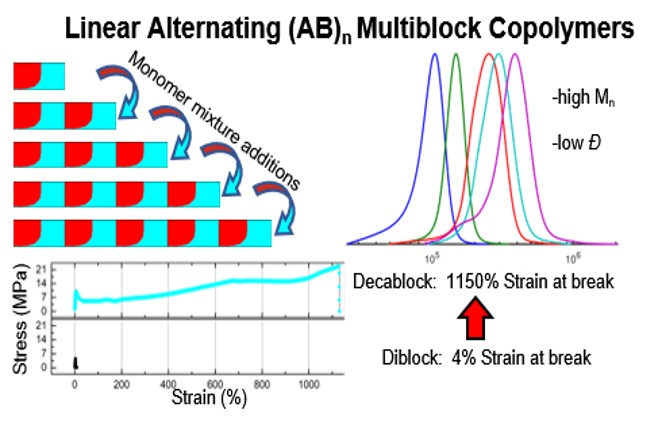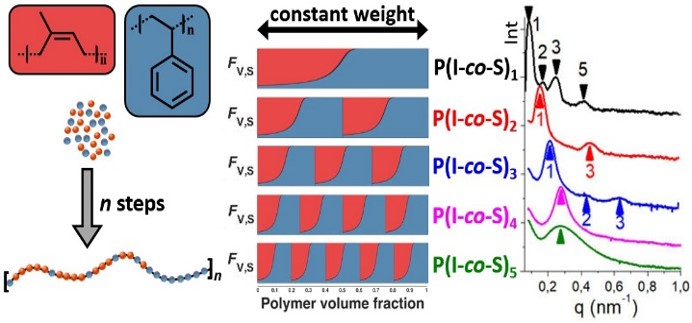
Grune, M. Appold, A. H.E. Müller, M. Gallei, H. Frey, ACS Macro Lett.,2018, 7, 807.
|
Based on the highly disparate reactivities of isoprene and 4-methylstyrene in the anionic copolymerization in nonpolar media, a general strategy for the rapid and scalable synthesis of tapered multiblock copolymers with an extremely steep gradient has been developed. A repetitive addition strategy of a mixture of isoprene and 4MS leads to a tapered diblock in each case, giving access to linear alternating multiblock copolymers of the (AB)n type with up to 10 blocks. Due to the incompatibility of PI and P4MS segments, the multiblock copolymers exhibit nanophase separation, manifested by separate glass transitions for both constituents. Stress–strain measurements revealed extraordinary toughness and elongations up to 1150% strain at break.
|

M. Steube, T. Johann, E. Galanos, M. Appold, C. Rüttiger, M. Mezger, M. Gallei, A. H.E. Müller, G. Floudas, H. Frey, Macromolecules 2018, 51, 10246–10258.
|
Three series of well-defined tapered multiblock copolymers with approximate molecular weights of 80, 240, and 400 kg/mol were prepared on the 100 g scale. Via this synthetic strategy polymer chains were divided in di-, tetra-, hexa-, octa-, and decablock tapered multiblock structures. Detailed thermal, structural, and rheological investigations showed that the tapered multiblock copolymers with a molecular weight of 240 kg/mol formed ordered phases with the expected lamellar morphology. However, X-ray scattering data and transmission electron microscopy (TEM) images of the octablock and decablock copolymers reflect weakly ordered structures at ambient temperature.
|